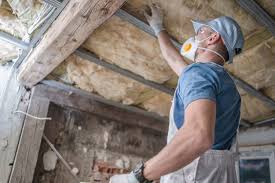In today’s competitive landscape, businesses across various industries are constantly seeking innovative ways to optimize their operations and reduce expenses. One significant area where cost savings can be realized is through shelter manufacturing. This approach not only provides practical solutions for storage and operational needs but also allows companies to streamline their processes, maximize space, and enhance overall efficiency. By investing in high-quality manufactured shelters, organizations can unlock a wide range of financial benefits that contribute to their bottom line.
With advancements in materials, design technologies, and production techniques, shelter manufacturing has evolved to offer versatile and durable options tailored to meet diverse requirements. From construction sites to agricultural applications, the strategic implementation of these structures can lead to reduced overhead costs, extended asset lifespan, and improved productivity. This article delves into the various aspects of shelter manufacturing, exploring how it can serve as a catalyst for significant cost savings while meeting the demands of modern businesses.
Cost Efficiency Through Customized Solutions
Investing in manufactured shelters can yield remarkable cost efficiency for businesses by minimizing the need for traditional construction and ongoing maintenance. These shelters can be tailored to specific operational needs, with options that enhance energy efficiency and reduce long-term overhead costs. Furthermore, innovative designs can optimize space utilization, allowing companies to store materials or conduct operations without the significant financial burden associated with conventional building projects. By adopting solutions like Mexico Shelter Solutions for American Companies, organizations can achieve not only a reduction in expenditures but also boost their productivity on-site.
Durability and Longevity of Shelters
The durability and longevity of manufactured shelters are key factors contributing to their attractiveness as an investment. Advanced materials and construction techniques have led to structures that withstand harsh weather conditions while maintaining structural integrity over time. This resilience translates to lower replacement and repair costs, ensuring that businesses can allocate their resources efficiently. By prioritizing quality in their shelter solutions, organizations can enhance their operational capacity while avoiding the pitfalls of frequent maintenance and unexpected expenses. Ultimately, durable shelters empower companies to focus on their core operations, driving performance and profitability forward.
In conclusion, the financial advantages of shelter manufacturing extend far beyond mere construction savings; they encompass a holistic approach to operational efficiency that can transform business trajectories. By investing in customized, durable shelters that cater specifically to individual needs, companies can minimize overhead costs, enhance productivity, and reduce maintenance burdens, all while ensuring long-term asset reliability. As organizations continue to navigate an increasingly dynamic marketplace, leveraging the cost-saving potential of manufactured shelters offers a strategic pathway toward sustainable growth and enhanced competitiveness. Embracing these solutions not only promotes fiscal responsibility but also positions businesses to adapt and thrive amidst changing industry demands.


